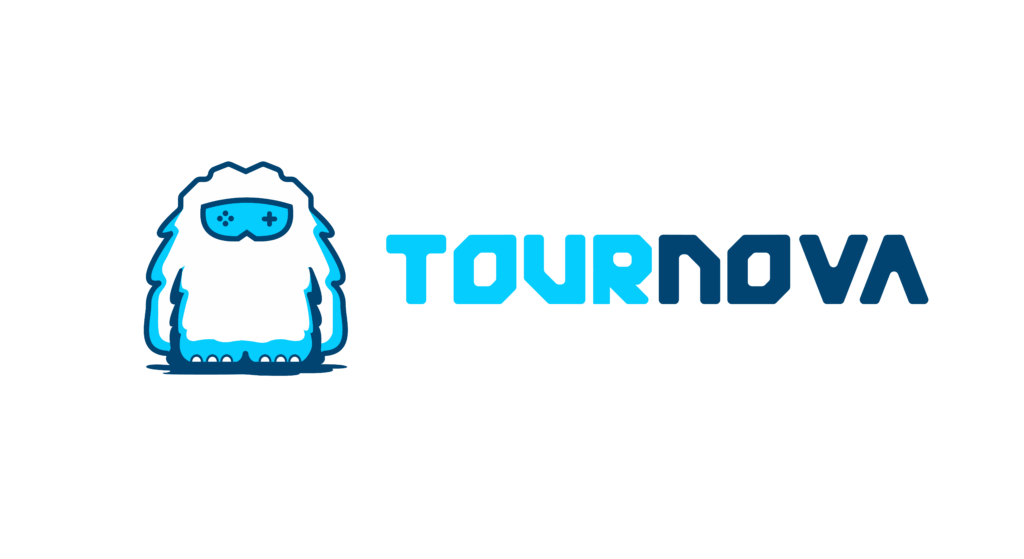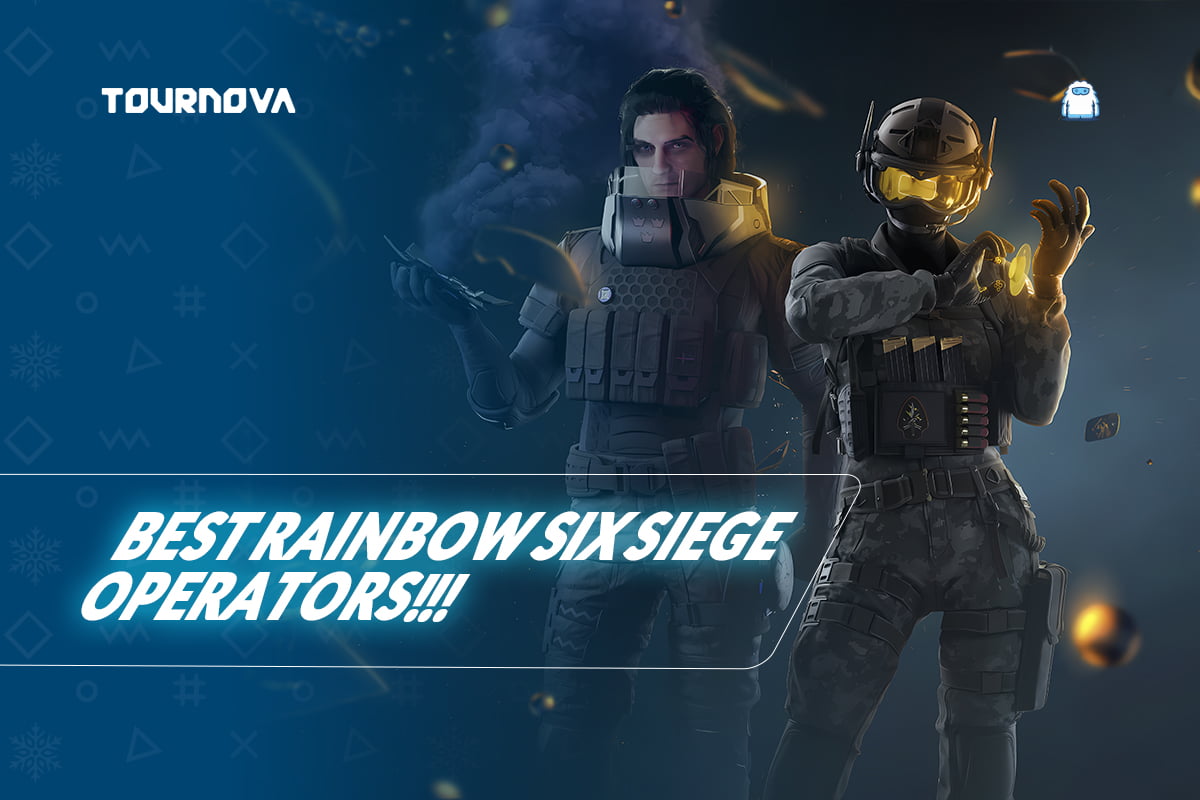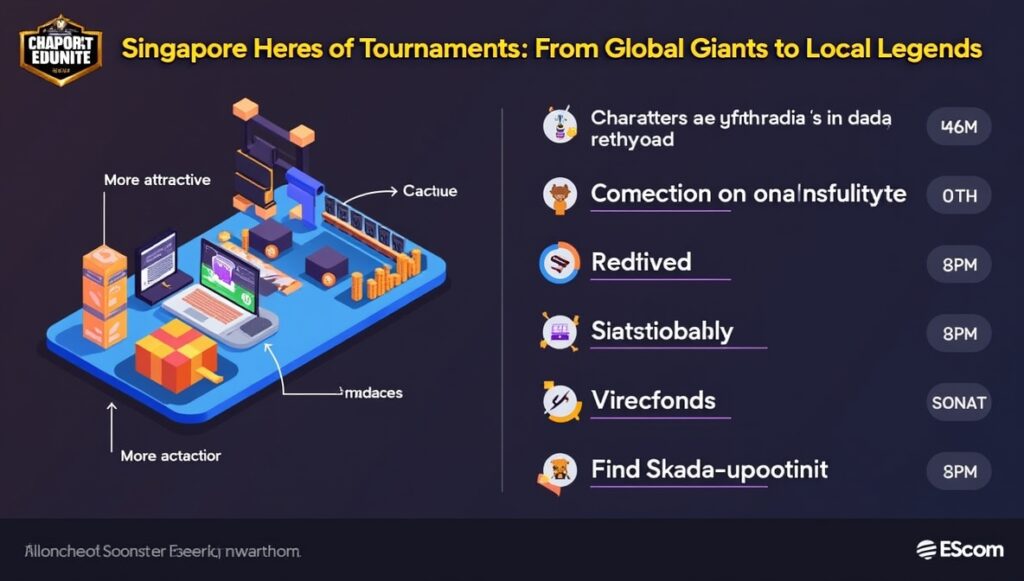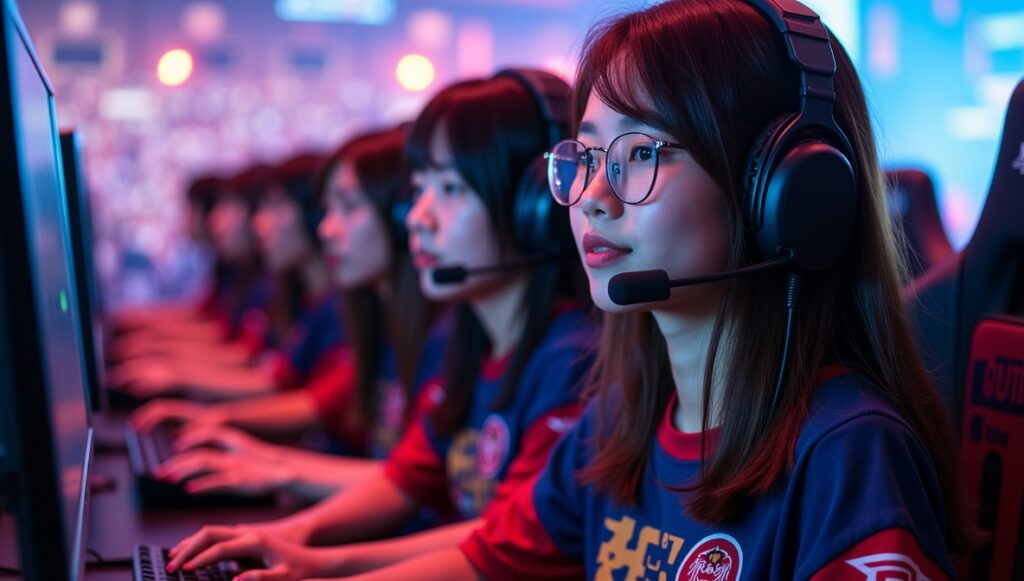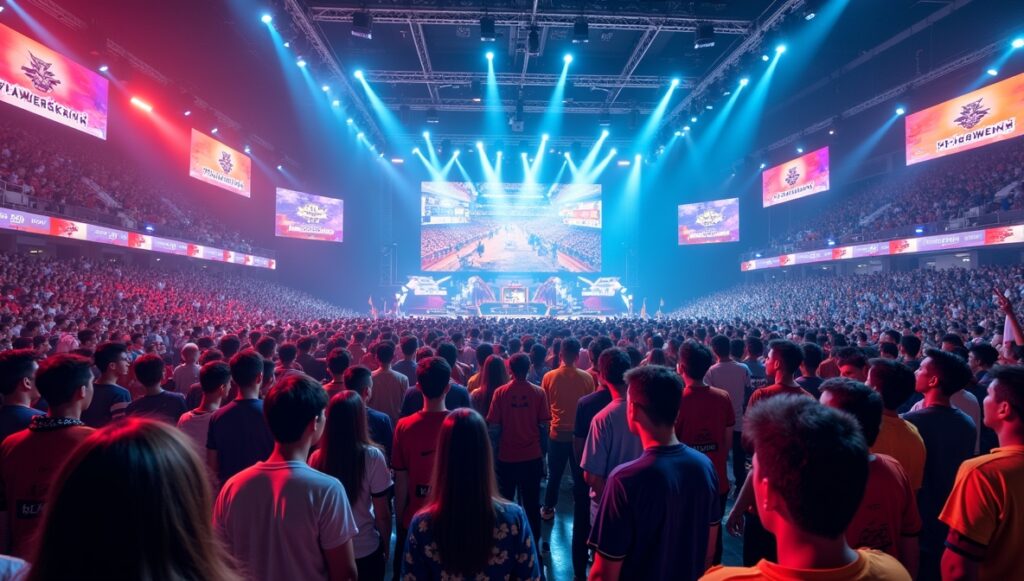Rainbow Six Siege isn’t just a game; it’s a battlefield of strategy, reflexes, and teamwork. If you’ve ever been caught in a “Who should I play?” dilemma during a match, you’re not alone. Operator selection isn’t just about picking your favorite; it’s about choosing the right tools for your team’s survival and success. That’s where the Rainbow Six Siege tier list becomes your best friend. With nearly 70 operators, changing metas, and constant balance updates, figuring out who’s the most effective can feel overwhelming. Fear not; we’re here to break down the top operators in each tier for competitive play. Whether you’re trying to rank up or just jump into casual games, this guide will give you the insight you need to master the operator pool and dominate the Siege battlefield.
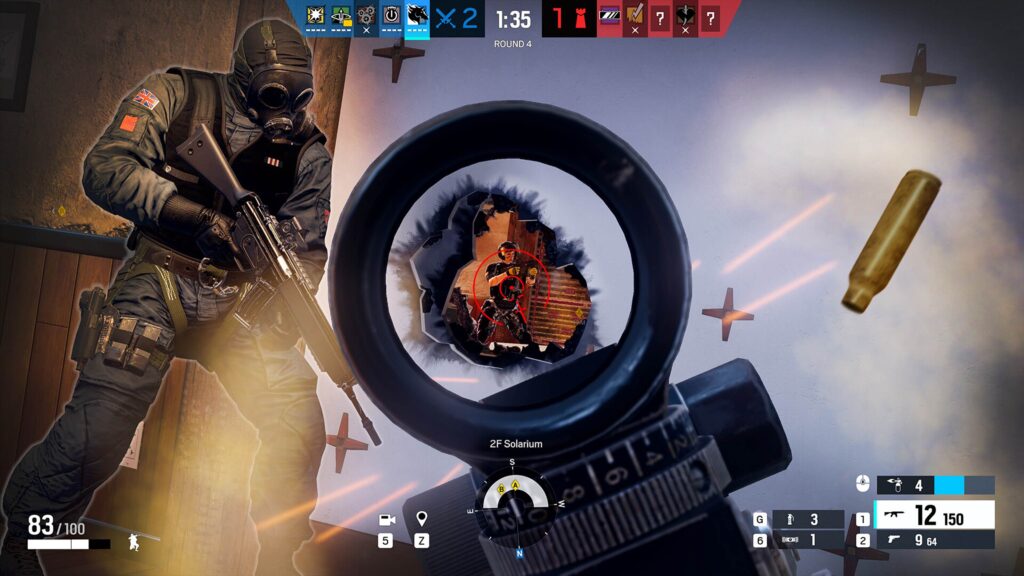
- Players choose from a wide range of Operators, each with unique gadgets and roles.
What Is the Rainbow Six Siege Tier List?
At the heart of Rainbow Six Siege lies one question: How well can your operators adapt to the fast-paced dynamics of the game? A Rainbow Six Siege tier list ranks operators based on their effectiveness, versatility, and how well they fit into the current meta.
We rely on five tiers to help you understand operator rankings:
- S-Tier: These are elite operators; powerful, versatile, and dominating every situation.
- A-Tier: Highly effective picks that shine in specific roles or strategies but require mastery to outclass their peers.
- B-Tier: Operators with niche strengths; they work well but may be outperformed by higher-tier operators.
- C-Tier: Situational picks; they’re useful sometimes but lack the consistency needed in serious play.
- D-Tier: The forgotten, underpowered operators struggling to maintain relevance in competitive matches.
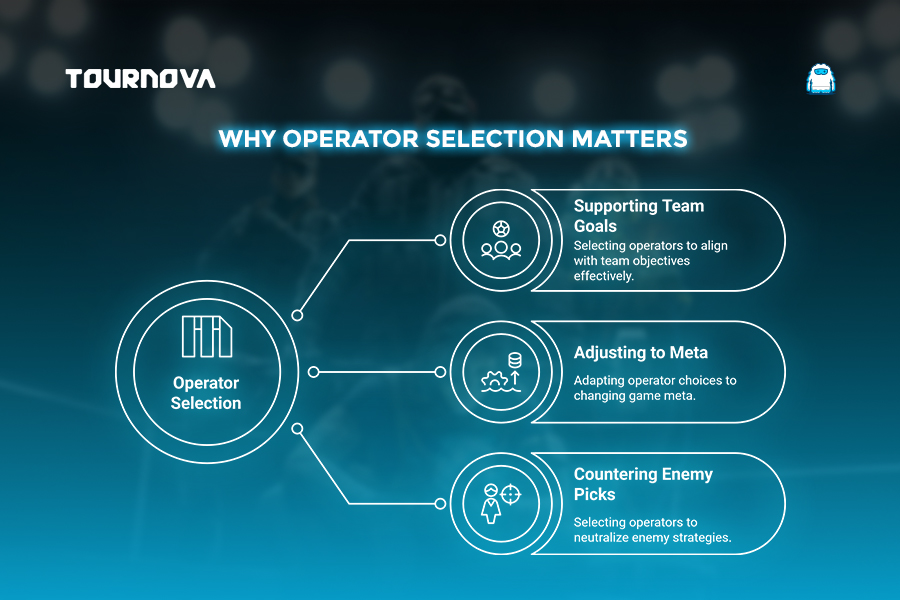
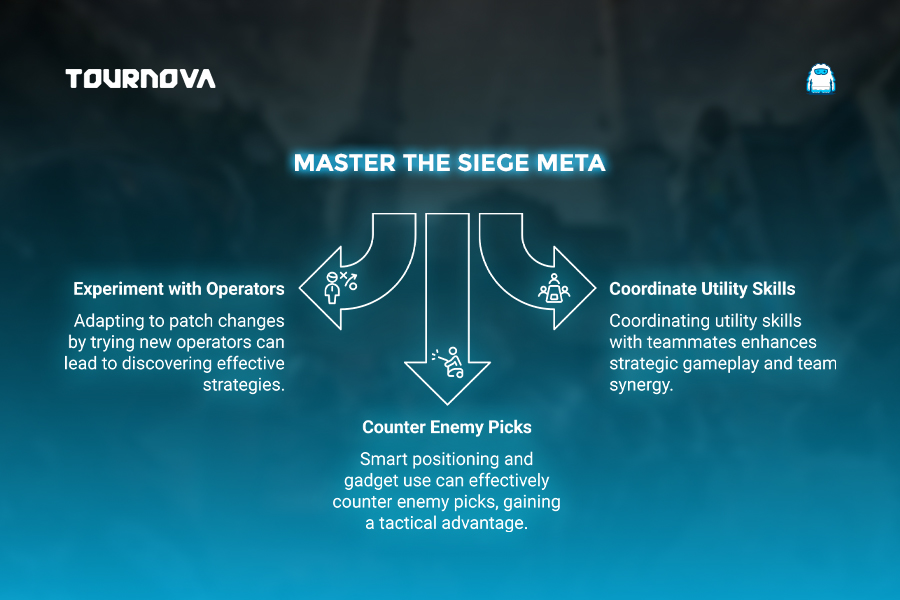
Understanding these tiers helps you build better team compositions, adapt to enemy strategies, and fully utilize the abilities of your chosen operator. Let’s dive into the rankings.
1. S-Tier Operators: The Best in the Game
S-Tier operators dominate the meta due to their versatility and match impact. Whether you’re attacking or defending, these operators are always a strong choice for any team.
1.1 Zofia
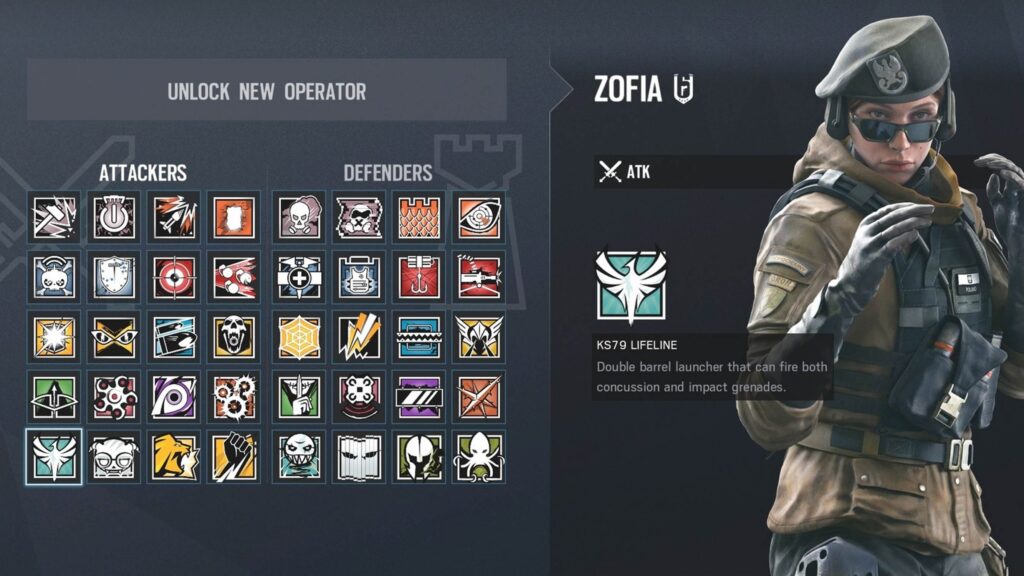
- She can quickly breach defenses and disorient enemies.
It’s hard to talk about Rainbow Six Siege without mentioning Zofia, a strong contender on the Rainbow Six Siege tier list. Her KS79 Lifeline gadget is a game-changer, capable of stunning enemies and taking out defensive utility with impact grenades. Her M762 assault rifle is a top-tier weapon perfect for fragging, making her a jack-of-all-trades who excels in clutch situations.
- Why S-Tier? Zofia is a dual-role operator who fits any lineup as both a great fragger and utility disruptor. She’s practically a “safe pick” in competitive games.
- Pro Tip: Save her concussive rounds for approaching heavily defended areas; they’re perfect for creating chaos and catching opponents off guard.
1.2 Ace
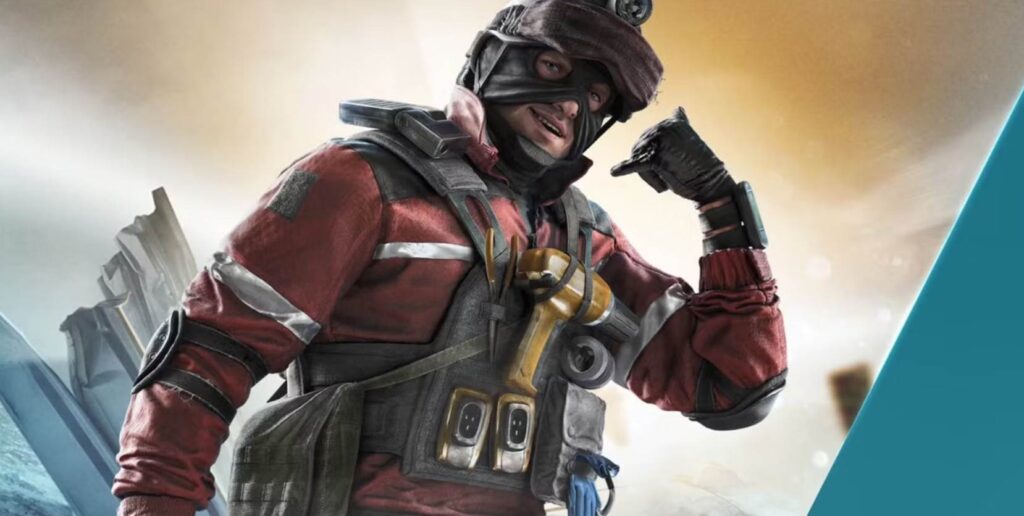
- His gadget deploys sequential explosive charges that produce large, rectangular breaches.
Ace has become a crowd favorite for hard breaching. His SELMA Aqua Breacher is versatile and efficient, capable of opening reinforced walls, hatches, and even some makeshift defenses. Great for strategic pushes, Ace’s gadget combines precision with adaptability, making him a must-have in ranked games.
- Why S-Tier? Ace balances utility and adaptability, fitting into many team compositions. Plus, his gadget is easy to use even for new players.
- Pro Tip: Throw the SELMA charges strategically; try to breach from angles that force defenders into uncomfortable rotations.
1.3 Bandit
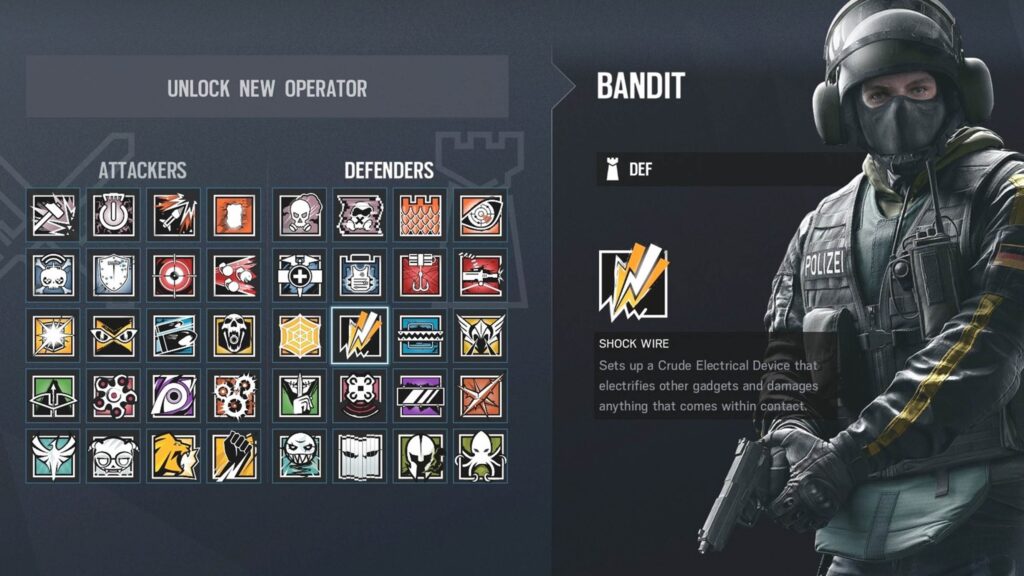
- His high-speed and powerful MP7 submachine gun makes him a formidable roamer.
Bandit hasn’t left the top-tier ranks for years, and for good reason. His Shock Wire gadget denies attackers access to reinforced walls by electrifying them. On maps like Clubhouse and Chalet, Bandit often becomes the backbone of defensive strategies, solidifying his position in the Rainbow Six Siege tier list.
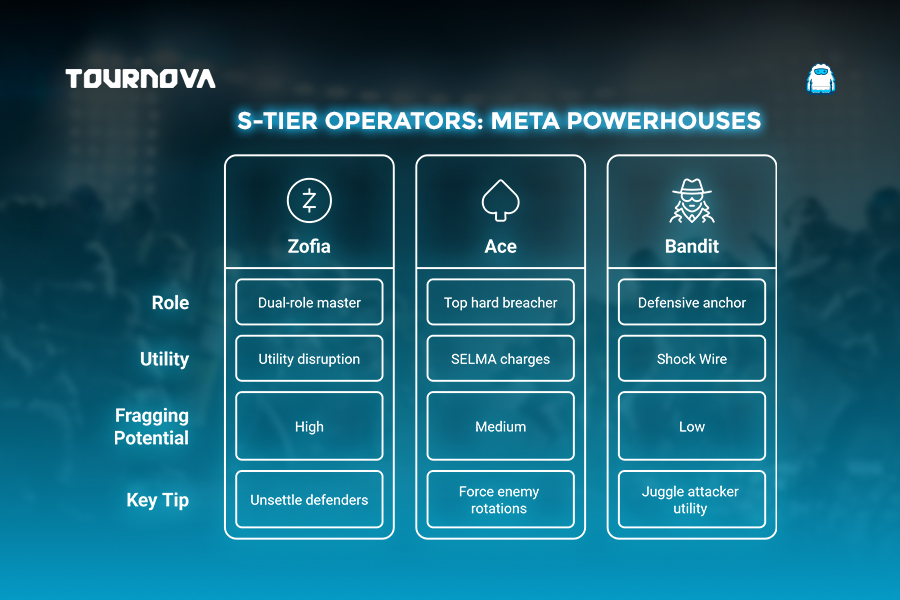
- Why S-Tier? He’s essential for slowing attackers and maintaining defender control. With a submachine gun and speed to boot, Bandit excels in both defense and aggression.
- Pro Tip: Use Bandit’s batteries selectively; delay the placement until attackers try pushing so you can juggle multiple critical walls.
2. A-Tier Operators: Strong but Situational
A-Tier operators hold their own in the meta, though they shine more in specific situations or setups. These picks often require skill or coordination to maximize their potential.
2.1 Thatcher
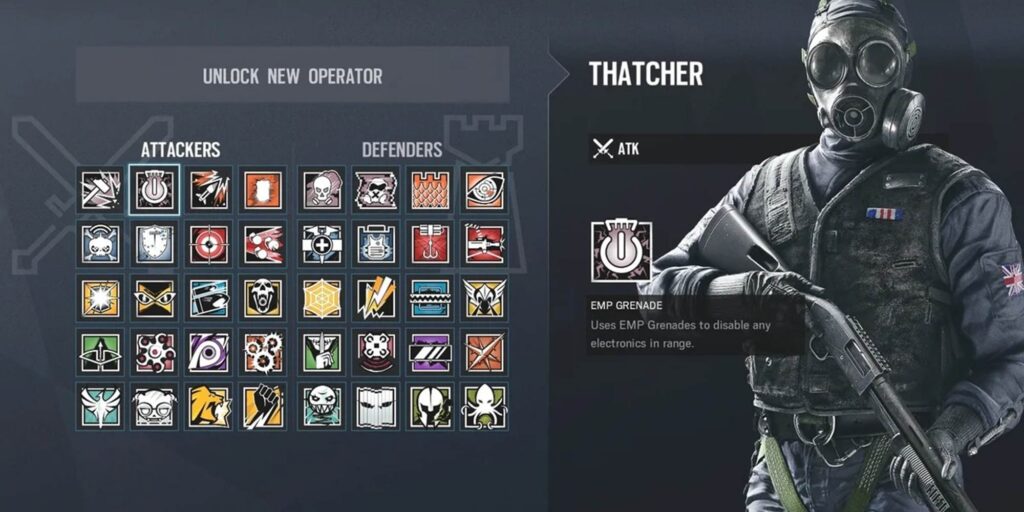
- His gadget is crucial for neutralizing traps and support devices.
Thatcher has always been a staple for utility disruption. His EMP grenades disable electronic gadgets, allowing his teammates to break through defended areas quickly. Unfortunately, he’s frequently banned in ranked play, making him less accessible.
- Why A-Tier? Thatcher is a key pick when available, but teams often need backup plans due to his high ban rate.
- Pro Tip: Coordinate EMP throws with hard breachers like Ace or Thermite for maximum efficiency.
2.2 Nomad
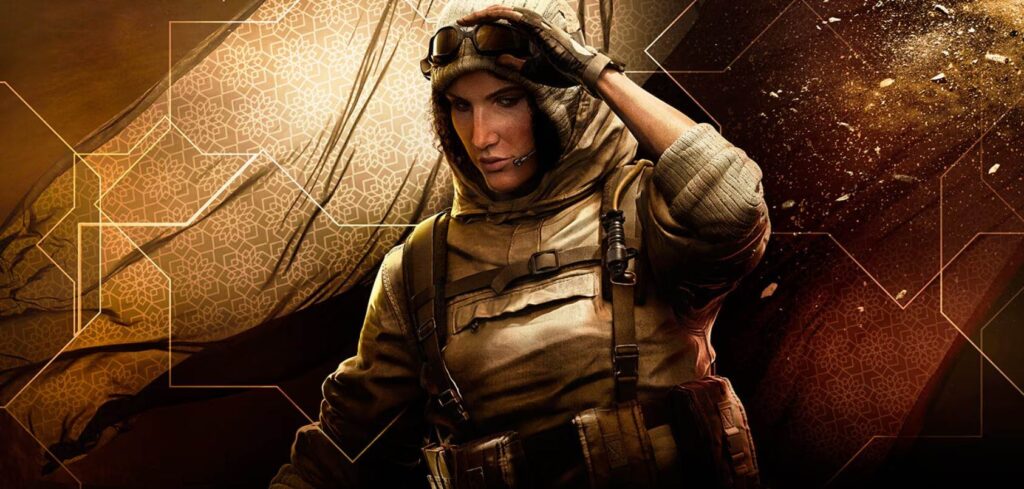
- Her gadget is ideal for flank control and disrupting defender movements.
Nomad is a great pick on the Rainbow Six Siege tier list for controlling flanks. Her Airjab traps are triggered by enemy movements, knocking them down and revealing their location to teammates. She excels in creating safe entry paths for attackers on maps with heavy roaming defenders.
- Why A-Tier? Nomad provides excellent map control but needs thoughtful placement to avoid redundancy with teammates covering angles.
- Pro Tip: Place her Airjab traps at choke points or under windows to block defender rotations.
2.3 Smoke
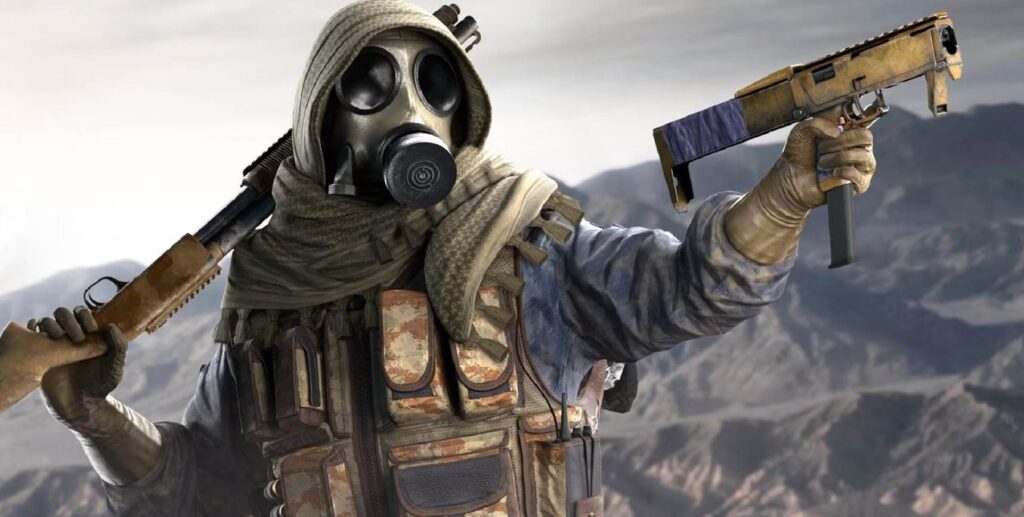
- He excels at area denial, using his gas to block entry points and delay plants.
On defense, Smoke is a utility anchor you can rely on. His Remote Gas Grenades are ideal for area denial, drowning attackers in chaos during their final push. Whether locking down doorways or slowing down attackers, Smoke remains one of the most strategic defender picks.
- Why A-Tier? Smoke’s ability to stall pushes and control enemy movement makes him indispensable, especially in objective-based games.
- Pro Tip: Don’t waste all his grenades early; save them for choking attackers during overtime objectives.
Efficient Tournament Management in a Dynamic Siege Meta with Tournova
Rainbow Six Siege’s constantly shifting operator meta poses challenges for players and tournament organizers alike. Operators climb and fall in tier rankings as updates roll out, prompting professional and amateur players to adapt their strategies continuously. Tournova, designed for platforms like Telegram and Discord, simplifies tournament management amidst this dynamic landscape by automating processes such as bracket creation, player matching, and result reporting. With the rising importance of efficient tournament organization, tools like Tournova allow organizers to focus on meta trends and competitive balance rather than logistical headaches.
Moreover, Tournova’s token economy system adds a layer of engagement for Siege players and organizers, especially when considering Rainbow Six Siege tier lists. Participants earn tokens through competitions, rewarding both performance and involvement. Tokens can be used for tournament entry, unlocking exclusive digital features, or entering high-stakes cash competitions. For a game like Rainbow Six Siege, where every tactical decision counts, Tournova ensures tournaments are streamlined, transparent, and accessible, making it easier for players to adapt to and succeed in ever-changing meta dynamics.
Summing Up: Mastering Operator Selection
We believe mastering the Rainbow Six Siege tier list is the key to upping your game in casual or competitive play. Start by learning the S and A-Tier operators; they’re the safest choices, but don’t shy away from experimenting with niche picks either. Every operator brings something unique to the table, and understanding their strengths and weaknesses is half the battle. Ready to dive into Siege and put your newfound knowledge to work? Let us know your favorite operators and strategies in the comments below!
Read about all the pro gaming tier lists and best players records on Tournova.
FAQs
1. Which operators are best for beginners in Rainbow Six Siege?
For attackers, Sledge offers straightforward utility with his hammer for breaching soft walls and floors. On defense, Rook is a safe choice, giving teammates armor while being easy to play effectively.
2. What should I focus on when using S-Tier operators?
Maximize their utility! For example, with Zofia, balance stun grenades and impacts depending on whether you need crowd control or gadget destruction.
3. Which maps favor S and A-Tier operators most?
Maps like Clubhouse and Oregon are great for S-Tier operators like Bandit and Ace because they prioritize breaching and controlling key walls. A-Tier defenders like Smoke perform well on defensive-heavy maps like Bank.
4. How often does the meta change in Rainbow Six Siege?
The meta shifts with nearly every major patch or season release (usually quarterly). Operators can change tier positions due to buffs, nerfs, and gadget reworks. Staying up-to-date with patch notes is crucial!
